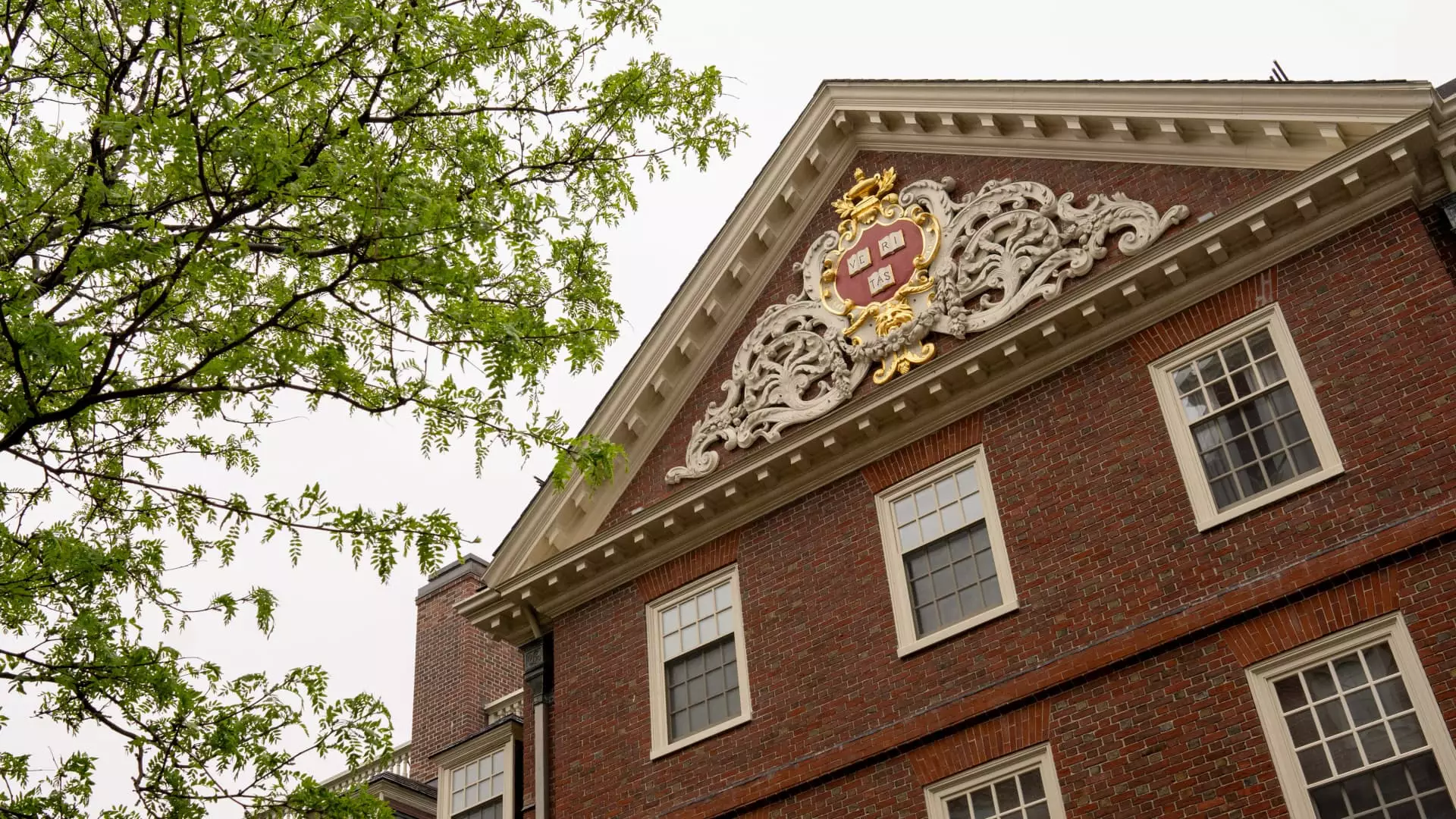The audacity of a sitting president contemplating the redirection of $3 billion in federal grant money is nothing short of alarming. President Donald Trump’s recent statements regarding potentially reallocating funds from Harvard University to trade schools reveal an unsettling trend: the politicization of education. Such a move could devastate not only the prestigious university’s funding but, more significantly, the broader ecosystem of research and innovation that relies heavily on federal support. In assuming a governing role that meddles with academic integrity, Trump is sending a signal of power that could undermine the fundamental tenets of scholastic freedom.
This episode underscores Trump’s long-standing grievance against elite universities, particularly those that lean left politically. By characterizing academic dissent as a threat, he dangerously politicizes spaces that should be governed by intellectual rigor and freedom of inquiry. The choices shrugged off as mere academic bias become a divisive tactic to consolidate power—proving that the fight for academic independence is intertwined with larger civil liberties and freedom of speech issues.
The Fragility of Academic Freedom Amid Political Agendas
Trump’s attempts to revoke Harvard’s federal grants, motivated by a perceived failure to align with his political objectives, illustrate an unsettling pattern in his presidency—a tendency to retaliate against institutions that dare to challenge or obstruct his agenda. The argument that these institutions harbor “Radical Left idiots” is a caricature that diminishes the essential virtue of academic diversity. It converts education into a battleground, wherein the predominant authority is pitted against the thinkers who dare to question the status quo.
The implications of reallocating funds that were earmarked for vital biomedical research shift the conversation from education to a seedily scarcity-driven narrative. Harvard’s claim—that it is facing an unconstitutional attack on its free speech rights—exposes the thin veneer of Trump’s governance. By silencing dissent and punishing academic institutions financially for their positions, he is not only infringing on rights guaranteed by the Constitution but also jeopardizing significant advancements in science that affect millions of lives.
A Formula for Disaster: Trade Schools and the Research Funding Disconnect
While the conversation about enhancing funding for trade schools is a salient one, Trump’s proposal to strip these funds from Harvard poses severe challenges. Trade schools rightly deserve investment, but the notion that administered biomedical grants can smoothly transition into trade school funding is naive, if not reckless. Federal grants often require a sophisticated and extensive provenance of scientific research, something that trade schools, primarily focused on vocational training, aren’t positioned to deliver.
Moreover, the reallocation of such funds does not address the deep-rooted issues facing higher education; it merely serves as a diversionary tactic. Instead of championing vocational education as valuable in its own right, Trump’s approach inadvertently diminishes the role of research in society, encouraging a harmful dichotomy between traditional universities and trade institutions. It sets an unsustainable precedent for future administrations, creating a perpetual cycle of conflict rather than constructive collaboration.
The Ripple Effect on International Students and Academic Diversity
Beyond the targeting of Harvard, the broader implications of these maneuvers threaten the status of international students in American universities. The striking reality that Harvard enrolled nearly 6,800 international students speaks volumes about the university’s commitment to academic diversity and the global dialogue it fosters. By casting foreign scholars as collateral damage in a punitive campaign, Trump threatens not only the sustainability of university programs but also the rich tapestry of ideas that come with international collaboration.
As the conversation continues about the merits of Trump’s policies, one can’t help but wonder about the lasting impacts this will have on America’s educational landscape. The recent court intervention, which temporarily blocked the Trump administration’s proposed measures against Harvard, begs a crucial question: Can academic institutions withstand this political onslaught, or are they fated to become pawns in a game of power politics?
In this unprecedented confrontation, a society that values education and intellectual freedom must stand vigilant, as the ramifications of political interference in universities echo far beyond financial realms. The call for solidarity is urgent—pushing back against efforts to commandeer and conflict with the sanctity of academia must come from all quarters.


Leave a Reply